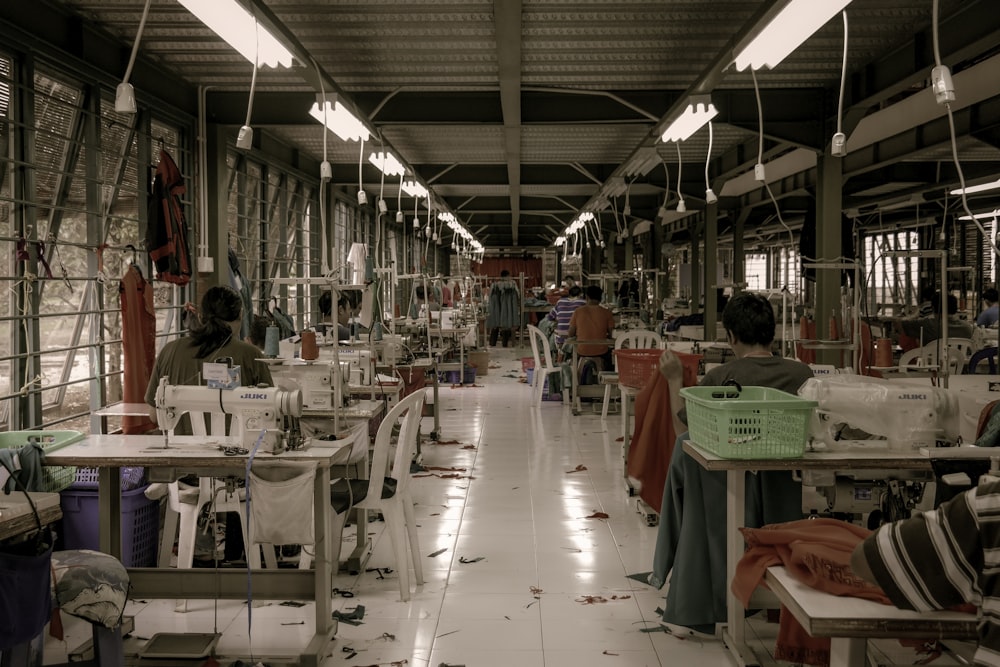The fashion industry has been under scrutiny for many years, whether it is their ecological impact but more importantly the working conditions for factory workers. Saffron Forde takes a closer look at what seems to be pushed under the rug.
Clothes are to be seen and not heard. But…
Fashion speaks. It weaves and flows. It is a tightening wrap that bears the story of fashion workers from across the world. Listen to that story. When you wear Levi’s, Wrangler, Zara, Boohoo and Primark. The stories are abusive, neglectful and dangerously suffocating.
But fashion is changing. And so are those stories.
A revolution for fashion workers has been a long time coming for every factory worker who has been continually abused, neglected and mistreated for a lifetime. However, the year 2020 shone a light down onto the fashion industry revealing the dark cloud that has previously been so masterfully hidden. Various reports accross the world have revelead mistreatment of factory works for years, and this has somehow escaped the public eye and the fashion industry for many years. One particular organisation that was heavily inspired by the change in fashion was “fashion revolution”, which began after the horrific Rana Plaza factory collapse which caused 1,138 deaths. The charity organisation has led to people becoming more fashion conscious and the charity aims to educate people on where their clothes come from. It is through this organisation of change that people are becoming more fashion aware especially in the year 2021.

In December 2019 the Guardian’s Annie Kelly travelled to the capital city of Lesotho, following reports of sexual abuse and harassment in a demin factory that makes jeans for Levis and Wrangler.
In Lesotho the garment industry is the biggest employer, employing more than the public sector and women make up 80% of the workforce, working the lowest paid and lowest skilled jobs and being forced to do unspeakable things to get those jobs. Last year, reports came from a factory in Lesotho of alleged sexual abuse against female workers. Allegedly, they were forced to have sex with male supervisors before getting the job and when they finally did gain a job in the factory, they were forced to continue this sexual relationship and if they dared to speak up or refuse they were fired. Unfortunately stories of prosititution and abuse of power only got worse and women also claimed alleged rape and sexual assualt.
And as a darker cloud drew over these factories, it drew an even darker cloud over the infamous fashion brands: Levi’s and Wrangler. There was a complete juxtaposition against the Levi’s brand, which advertised a complete Americaness with their clothes and built a story of an American dream in the promise of their clothing. Their brand against the wall. A national outrage a pin prick away. A change happened.
The investigation led to the first ever attempt to end gender-based violence which led to the Lesotho agreement, promising to place more women in supervisor roles and provide counselling to the women who suffered. And later in 2020 when coronavirus hit the factory world, workers were given a small stipend to help them through the challenging circumstances.

Across the world another historical change, that has come from the revelation of the treatment of factory workers, comes from a factory in Leicester city in England. An investigation revealed workers were being paid as little as £3.50 an hour, an idea that Boohoo strongly denies. Workers were further subjected to poor working conditions and forced to work throughout lockdown despite presenting symptoms of COVID-19, and were also forced to take their lunch breaks inside the factories. In light of the allegations and the facts revealed through the investigation, Boohoo set up a model factory after 15% of their share price fell. Furthermore, the bosses of these factories have been banned for running any factory for 400 years. They have continued to make an effort for their workers and to prevent another fashion scandal from ever happening again. Both in Leicester and in South Africa and in many other cities, factory workers are fighting against a pandemic that has been hidden in plain sight for centuries. However, the pressure of Covid-19 and the constant reports going public has placed a much needed spotlight on factories across the world.
Big fashion brands have been in the headlines for many years. Their wrongdoings are still negatively impacting factory workers. These brands have continuously engaged in illegal activities to gain profit and it is important a light shines bright onto these practices as it is their brand and their story. The more attention that is given to the issue, the more change will transpire.